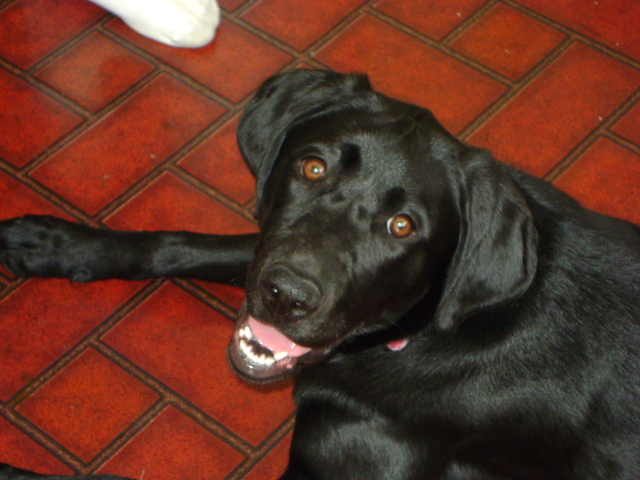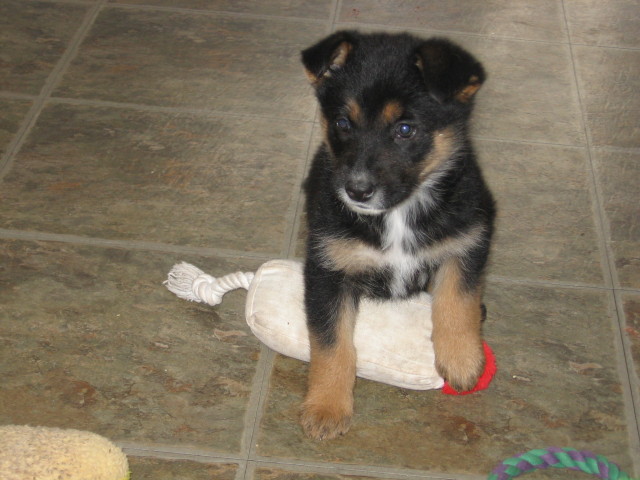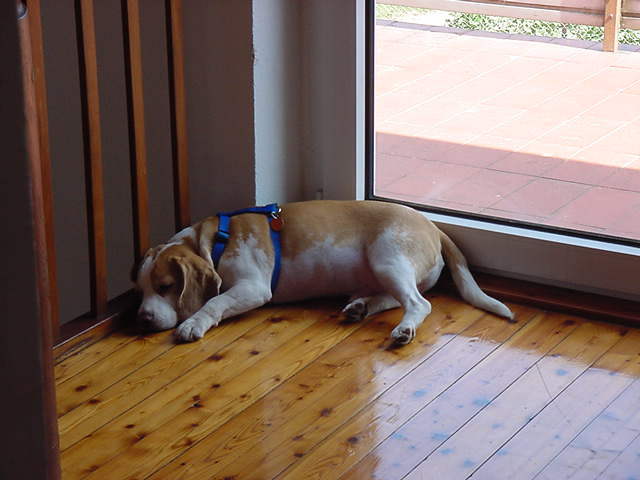QuestionMy 4 year old springer has begun to overgroom - leaving saliva stains pretty much everywhere she can reach! she is regularly wormed and I use the appropriate "skin drops" to eradicate fleas, ticks and mites as prescribed by the vet. When I asked the vet about her overgrooming he simply said "shes a springer - what do you expect?" I don't feel this was an adequate or satisfactory answer - there surely must be an underlying cause? Any suggestions? I feel shes almost got into the habit of doing this now and can't stop herself. Is this a behavioural problem I can help her with?
thank you
AnswerI can't imagine what your veterinarian meant by that comment, not having lived with any Springer Spaniels and having treated them mainly for "rage syndrome", a temporal lobe seizure disorder. However, I can tell you that the comment demonstrates (to me) a total lack of compassion for the dog and for you, and an apparent inability (or lack of knowledge) to prescribe medication that treats such obsessive compulsive behavior.
Do NOT treat your dog with SKIN DROPS any longer for any reason. First, the topical treatment is a chemical agent that is absorbed through the skin (the largest organ in the body is the skin) into the blood stream. It's impossible to believe that such an agent will not have deleterious effects on the dog's health (especially immune system) and possibly cause premature death due to autoimmune problems, cancer, etc. Once in a great while, perhaps a chemical treatment for fleas is possible without endangering the life of the animal; however, SOAP kills fleas just as readily as these chemical agents. A grooming (soapy bath, blow dry and comb out) once a month should confine any flea problem. If you have a large tick population in your area (such as you might if you lived in a rural area where deer are ubiquitous) you would need to examine your dog carefully after every outing (and yourselves!) Second, your dog is also INGESTING this agent if s/he is self grooming.
It's QUITE possible that a skin irritation, caused by those "skin drops", precipitated this grooming habit; it also may have been caused by food allergy. Many dogs develop sensitivity to commercial food and this can literally happen overnight even in a dog that has eaten the same food for quite a while. We have no way of knowing which one it might have been, but you can certainly determine the condition of your dog's skin by parting her coat (especially toward the rear of the dog) and observing the skin. If you see redness, soreness, or any indication of skin involvement, and if you have not used those drops within the last month, then the food may be the culprit. Dogs also develop (as do humans) skin sensitivity to agents used for cleaning; this is contact dermatitis caused by laundry detergent, rug shampoo, floor cleaners, etc. You have to be the detective on this job and do some consideration regarding this, after observing the dog's skin condition. If you see NO evidence of skin irritation, then your dog has become a habitual groomer. It may well have begun as a reaction to something, but now has become a habit. IF it IS habitual, then medication, coupled with behavior modification, can change the behavior. The medication of choice is Clomicalm. So here are my suggestions:
1. Do your investigative work. Look the dog over carefully (under the coat) to determine if there is evidence of skin irritation. If so, think back to when this behavior developed and try to make a connection to some agent or change of diet.
2. Find another veterinarian ASAP. Call around and ask for credentials (yes you are allowed to do this!). Ask for references from friends, neighbors, people in the dog park, etc. Try to locate a veterinarian who cares more about the emotional lives of both animals and their human companions and who is willing to write a prescription, should your dog turn out to be a habitual groomer.
REPOST with your results. If your dog has a behavior problem, with absolutely NO physiological basis, we will solve it.

 Agressive 1 yr old mini goldendoodle
Question
our millie
My husband and I got our min
Agressive 1 yr old mini goldendoodle
Question
our millie
My husband and I got our min
 Black lab - 1 yr
QuestionSheba
QUESTION: My lab loves to bite her
Black lab - 1 yr
QuestionSheba
QUESTION: My lab loves to bite her
 puppy problems
QuestionQUESTION: I am the proud owner of 2 german shep
puppy problems
QuestionQUESTION: I am the proud owner of 2 german shep
 Mini Daschund with anxiety issues
QuestionAbigayle
QUESTION: I have a 3 1/2 yr old
Mini Daschund with anxiety issues
QuestionAbigayle
QUESTION: I have a 3 1/2 yr old
 licking the floor not stop
QuestionGeorgie
QUESTION: Hi,
I have a 7 year ol
licking the floor not stop
QuestionGeorgie
QUESTION: Hi,
I have a 7 year ol